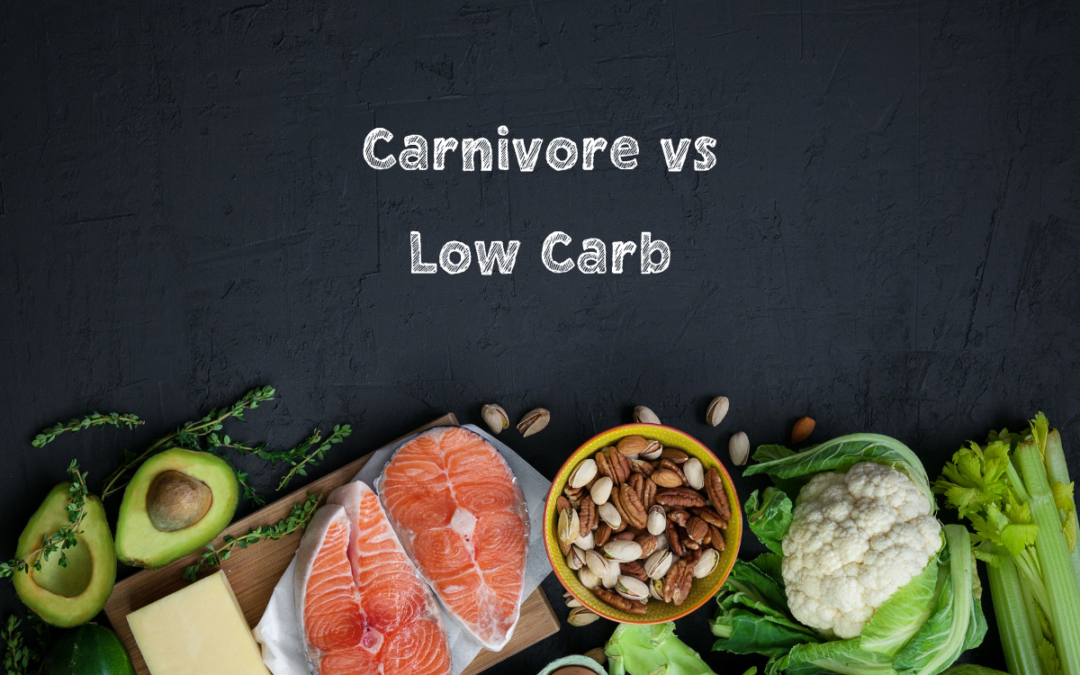In recent years, the popularity of restrictive diets has surged, with the Carnivore Diet and Low Carb Diet being two of the most talked-about options. Both diets have garnered a significant following, but which one is better for you? Let’s explore the differences between these diets, their benefits and risks, the foods allowed and prohibited, their impacts on weight loss and muscle gain, and their overall health implications.
What is a Carnivore Diet?
The Carnivore Diet is a highly restrictive eating plan that involves consuming only animal products while eliminating all plant-based foods. This means no fruits, vegetables, grains, legumes, or nuts. Advocates of the Carnivore Diet claim it can lead to weight loss, increased energy levels, improved digestion, and reduced inflammation. However, the diet’s exclusion of plant-based foods raises concerns about potential nutrient deficiencies, as plants are primary sources of essential vitamins, minerals, and fiber.The long-term effects of following a Carnivore Diet are not yet fully understood. Some studies suggest that a high intake of animal products may increase the risk of certain health conditions, such as heart disease and certain types of cancer. Additionally, the environmental impact of a Carnivore Diet is significant, as producing animal products requires more resources compared to plant-based foods. Therefore, it is recommended to consult with a healthcare professional before starting a Carnivore Diet and to consider the potential risks involved.
CLICK HERE to learn about the supplement that is driving my weight loss
What is a Low Carb Diet?
A Low Carb Diet restricts carbohydrate consumption while allowing for more protein and fat intake. By reducing carbs, the body is forced to burn stored fat for energy, which can lead to weight loss. This diet is popular not only for weight loss but also for its potential benefits in reducing blood sugar levels, improving heart health, and lowering cholesterol levels. Additionally, a Low Carb Diet may help improve mental clarity and reduce inflammation in the body.Foods typically restricted in a Low Carb Diet include sweets, pastries, soft drinks, fruit juice, some fruits like bananas and grapes, dairy products such as milk and yogurt, and starchy vegetables like potatoes, corn, and peas. Instead, the diet emphasizes the consumption of lean meats, fish, eggs, non-starchy vegetables, nuts, seeds, and healthy fats.
Weight Loss: Carnivore vs. Low Carb
Both the Carnivore and Low Carb Diets can be effective for weight loss. However, sustainability is a crucial factor that affects long-term weight loss success. The Carnivore Diet may lead to quick weight loss due to its highly restrictive nature, but it is not ideal for long-term weight management because of the risk of nutrient deficiencies and other associated risks. On the other hand, a Low Carb Diet has numerous studies supporting its effectiveness in weight loss and may be more sustainable due to its flexibility and variety of food options.
Muscle Gain: Carnivore vs. Low Carb
Both diets can be suitable for muscle gain, as they emphasize high protein intake, which is essential for building muscles. However, a Low Carb Diet may be more effective in supporting muscle gain because it allows for a healthy intake of carbohydrates, which can provide a sustained energy source for workouts. The Carnivore Diet, lacking sufficient carbohydrates, might not support intense workouts as effectively, potentially affecting muscle-building potential.
Health Implications:
Meat Consumption
Consuming meat in moderation can be part of a healthy diet, providing important nutrients such as iron, zinc, and vitamin B12. However, excessive consumption of meat, particularly processed meats like bacon, sausages, and deli meats, has been linked to increased risks of some cancers, heart disease, and stroke. People on a Carnivore Diet may consume large amounts of meat, which could potentially increase these health risks.
Carbohydrate Consumption
Carbohydrates are the primary source of fuel for our bodies. Consuming too many refined carbohydrates, such as sweets, pastries, and sugary drinks, can lead to weight gain, promote inflammation, and increase the risk of chronic diseases. Conversely, consuming complex carbs such as whole grains, fruits, and vegetables can offer numerous benefits, including reducing the risk of some cancers, heart disease, and type 2 diabetes.
CLICK HERE to learn about the supplement that is driving my weight loss
Can You Combine the Two Diets?
It is possible to combine elements of both diets to create a balanced approach that suits individual needs. For example, one could follow a primarily low-carb diet while incorporating more animal products, or a carnivore diet with occasional low-carb vegetables. Consulting with a healthcare professional can help tailor a diet plan that meets nutritional needs and health goals.
In conclusion, both the Carnivore Diet and Low Carb Diet have their unique benefits and risks. The best choice depends on individual health goals, preferences, and lifestyle. Always consult with a healthcare professional before making significant dietary changes.
Disclaimer: We are not doctors and are not recommending you start a diet without first consulting a physician.
This article may contain affiliate links.

